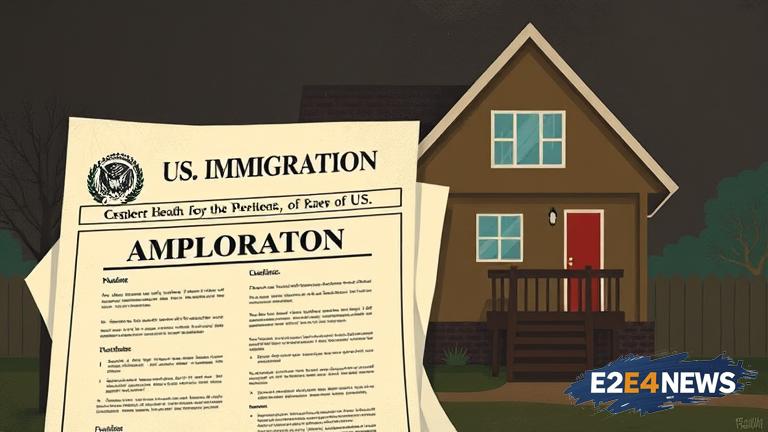In a recent development, US immigration authorities have taken a new approach to gather information about undocumented immigrants. The authorities have issued subpoenas to landlords, requiring them to provide detailed information about their tenants. This move is seen as a part of the ongoing efforts to crack down on illegal immigration in the country. The subpoenas are being issued to landlords in various parts of the country, and they are being asked to provide information such as the names, addresses, and immigration status of their tenants. The authorities are also seeking information about the rental agreements and the duration of the tenancy. The move has been met with criticism from immigrant advocacy groups, who argue that it is an invasion of privacy and could lead to the deportation of undocumented immigrants. The groups are also concerned that the subpoenas could have a chilling effect on the willingness of landlords to rent to immigrants, regardless of their immigration status. On the other hand, the authorities argue that the subpoenas are necessary to ensure that the country’s immigration laws are being enforced. They also argue that the information gathered will help to identify and deport undocumented immigrants who are living in the country illegally. The issue has sparked a heated debate about the balance between national security and individual privacy. While some argue that the authorities have the right to gather information to enforce the law, others argue that the subpoenas are an overreach of power and could lead to abuse. The controversy has also highlighted the complexities of the US immigration system and the need for comprehensive reform. The use of subpoenas to gather information about immigrants is not new, but the recent move has brought the issue back into the spotlight. The authorities have been using various methods to gather information about immigrants, including raids and checkpoints. However, the use of subpoenas to landlords is seen as a more targeted approach, as it allows the authorities to gather specific information about individual immigrants. The move has also raised concerns about the potential impact on the rental market, as some landlords may be reluctant to rent to immigrants due to the risk of being subpoenaed. Overall, the issue is complex and multifaceted, and it is likely to continue to be a topic of debate in the coming months. The US immigration system is in need of reform, and the use of subpoenas to gather information about immigrants is just one aspect of the larger issue. As the debate continues, it is likely that we will see more developments on this issue, and it will be important to monitor the situation closely. The impact of the subpoenas on the immigrant community and the rental market will be closely watched, and it is likely that there will be legal challenges to the use of subpoenas in this way. In conclusion, the use of subpoenas to gather information about immigrants is a complex issue that raises important questions about privacy, national security, and the balance of power. As the situation continues to unfold, it will be important to consider the potential consequences of this approach and to work towards a more comprehensive solution to the US immigration crisis.
